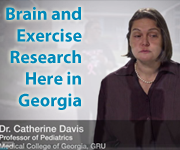Facebook, Twitter and texting are nearly ubiquitous methods of communication for many kids and teens. All that time spent on social media could help kids and teens prevent childhood obesity, according to the American Heart Association (AHA).
The organization released a statement this week calling for more research to help health care providers incorporate social media into programs and interventions to promote healthy behaviors and prevent obesity among children and adolescents.
"Online communication and social media are an increasing part of our lives and our overall social network of family, friends and peers," Jennifer S. Li, M.D., chair of the AHA’s group, said in a statement. "Healthcare providers should embrace its potential as a tool for promoting healthy behavioral change."
Surveys have found that about 95 percent of U.S. adolescents have Internet access at home or in school. Nearly 90 percent of U.S. teens have a Facebook profile, and about 50 percent check it daily, according to a 2012 study by online security company McAfee. Understanding what makes young people more likely to interact online could help health providers and policy makers craft effective health interventions.
"Doctors need to understand digital technology better so that they can offer guidance to patients and their families on avoiding such issues, and will be aware of any such problems that occur," Li said in the statement.
Li and her colleagues evaluated research on Internet-based interventions designed to promote physical activity and healthy eating. The group concluded that previous studies have not given conclusive results on how health care providers can use social media effectively to reach a young audience.
But they did discover that online interventions were more successful in helping overweight children and teens when there was more parental involvement and interactions with counselors and peers. Success was also influenced by whether the rest of the family was involved in the intervention, the degree of back-and-forth communication and feedback with a counselor or support group, and the frequency with which kids and adolescents logged on and used the programs.
They also found that kids and teens are more likely to interact with peers who are similar to themselves.
"Athletes tend to hang out with athletes, and overweight kids hang out together so they reinforce each other’s eating habits or preferences for recreational activities," Li said. "So if you develop a network of kids who are overweight, you can have an impact on all of them — in the real world and online — because if one starts making healthy changes, the others will be influenced to do so as well."
The researchers noted that there are downsides to social media, such as cyberbulling, privacy issues, sexting, and potential Internet addiction. But they said clinicians, policy makers and researchers should ensure privacy protection, monitor outcomes and harness the strength of a health promotion social network to help kids and teens improve their health.



